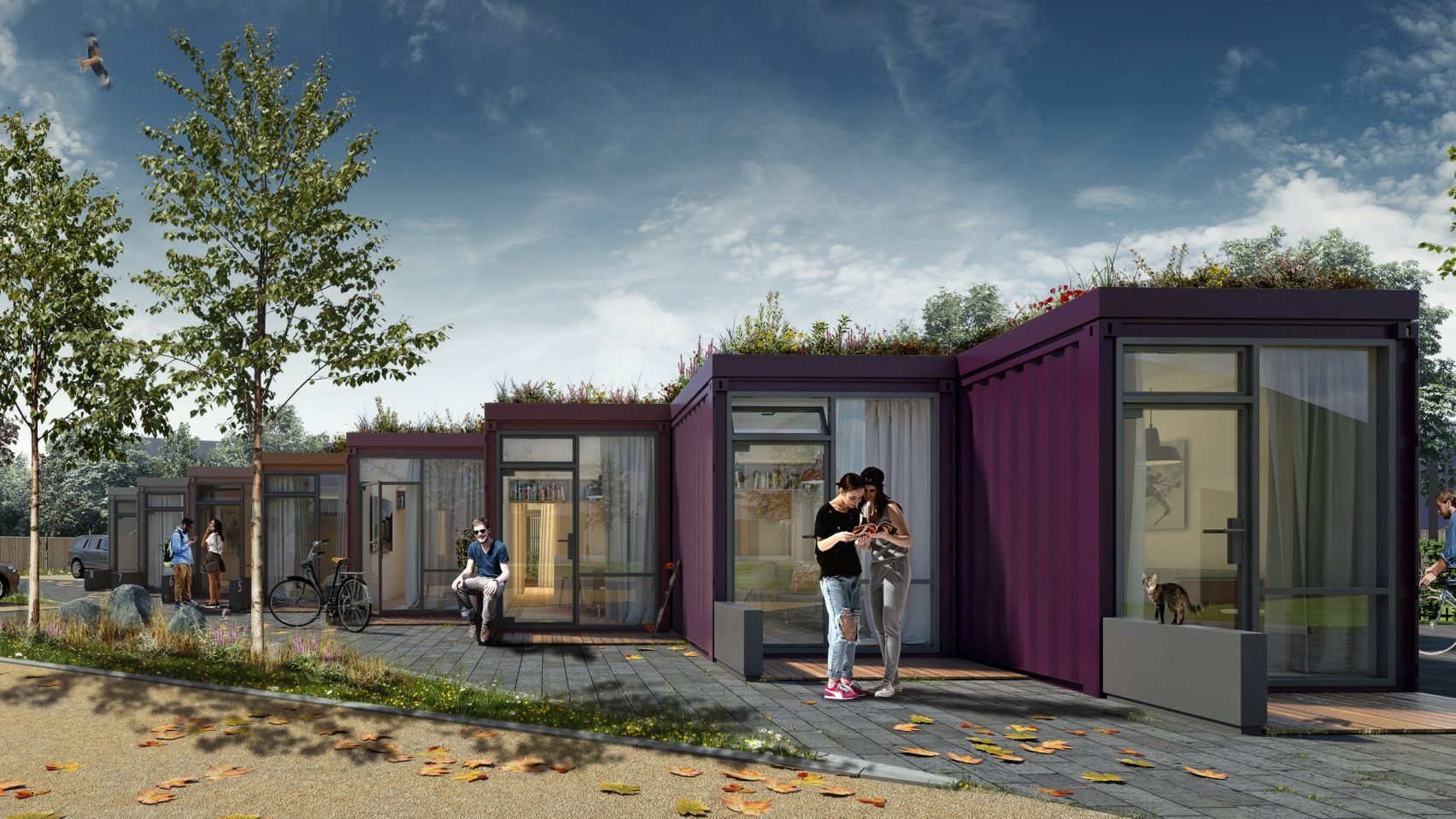Container homes have a lot of great qualities, but they certainly aren’t for every person and every situation. In fact, there are scenarios where we generally recommend you do not build your home with shipping containers. So, let’s talk about some of the specific reasons why you may (or may not) find shipping containers to be a good fit.
Advantages:
Price
It comes as no surprise that a lot of the attraction to and buzz around shipping container homes is related to price. Some of it is fair, some of it is not. In many cases, shipping containers can be built quite cheaply, perhaps even cheaper than an equivalent home of traditional construction techniques.
While there are a huge number of variables that influence cost (geography, size, design, interior finish-out, etc), we generally say that container homes do offer a small cost savings for most owners. And, if you’re interested in doing some of the work yourself while being resourceful with some of the other expenses, the savings can be significant.

Eco-friendly
There are millions of shipping containers in the world, but only a fraction of them are in service and used actively. Many of the remaining containers are wasting away in ports and storage yards across the world. Using one of these already existing containers as the basis for a home is a great example of adaptive reuse.
For each 40 ft shipping container, you are reusing more than 8,000 pounds of steel. You are also reducing the amount of other traditional building materials you’ll need, like masonry and wood.
While you could argue that melting down the shipping container and turning the steel into something else is more environmentally friendly, that’s not usually the case. Melting steel requires an incredible amount of energy, you’ll need to remove and dispose of the wooden floor beforehand and then deal with transportation to the steel recycling plant.
Off-Site Construction
Another great advantage of a shipping container home is that it can be built off site and then delivered to your land ready to move in.
Another great advantage of modifying your shipping container at a local workshop is that you don’t need to make your container watertight immediately. If you were converting the container outside, you’d want it watertight so no rain gets inside the container during construction. However converting the container inside means you don’t need to worry about making the container watertight instantly.
Fast to Build
Shipping container homes can be built incredibly fast.
The main reason constructing with shipping containers can go so quickly is that when purchased they already have the walls, floor and ceiling. They only need to apply insulation, finish the insides, and decorate them!
Disadvantages
Building Permits and Building Codes
When you’re building a home you are typically subjected to your local zoning and construction regulations. While the severity of these regulations depends on your location, you can generally expect some amount of paperwork or approvals. While traditionally constructed houses face these same issues, they are much more common and thus more easily approved in many cases.
The building inspectors really aren’t familiar with this type of construction, and the neighbors might object to anything different in fear that it may affect their property value.
Always check with your local zoning departments and inspection departments before you begin construction!
Experienced Contractors
Many people want to build their shipping container homes themselves or at least in part. Sometimes this just isn’t possible either because they don’t have enough time or they don’t have previous DIY experience.
Instead, these people will employ a contractor to build the home for them. You want a contractor with experience to advise you and guide you throughout the process. This can be an exasperating and tedious task.

Building a shipping container home can be one of the most rewarding experiences of your life, but only if it makes sense for your individual situation.
What do you think? It’s the shipping container house right for you?
